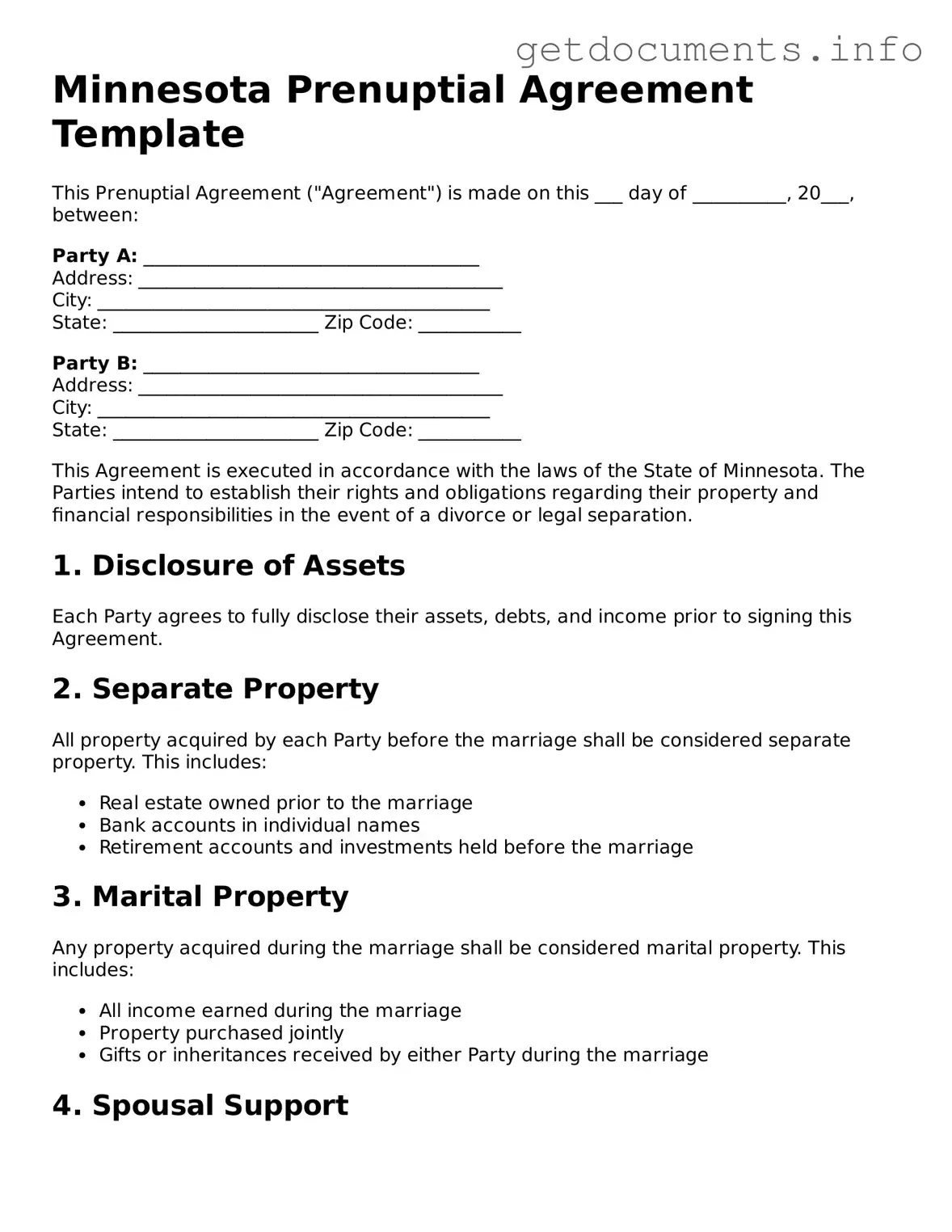Free Prenuptial Agreement Template for Minnesota
A Minnesota Prenuptial Agreement form is a legal document that outlines the financial rights and responsibilities of each spouse in the event of a divorce or separation. This agreement helps couples clarify their expectations and protect their assets before tying the knot. If you're considering a prenuptial agreement, take the first step by filling out the form below.
Click the button below to get started!
Access Prenuptial Agreement Editor

Free Prenuptial Agreement Template for Minnesota
Access Prenuptial Agreement Editor
Got places to be? Complete the form fast
Fill out Prenuptial Agreement online and avoid printing or scanning.
Access Prenuptial Agreement Editor
or
⇩ PDF File
